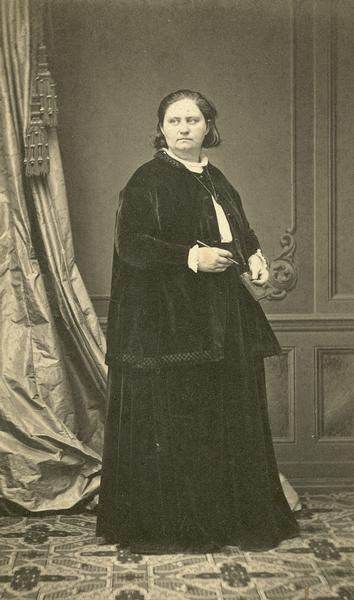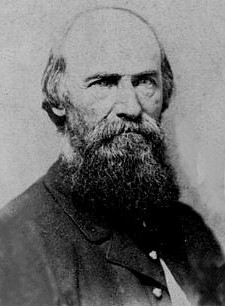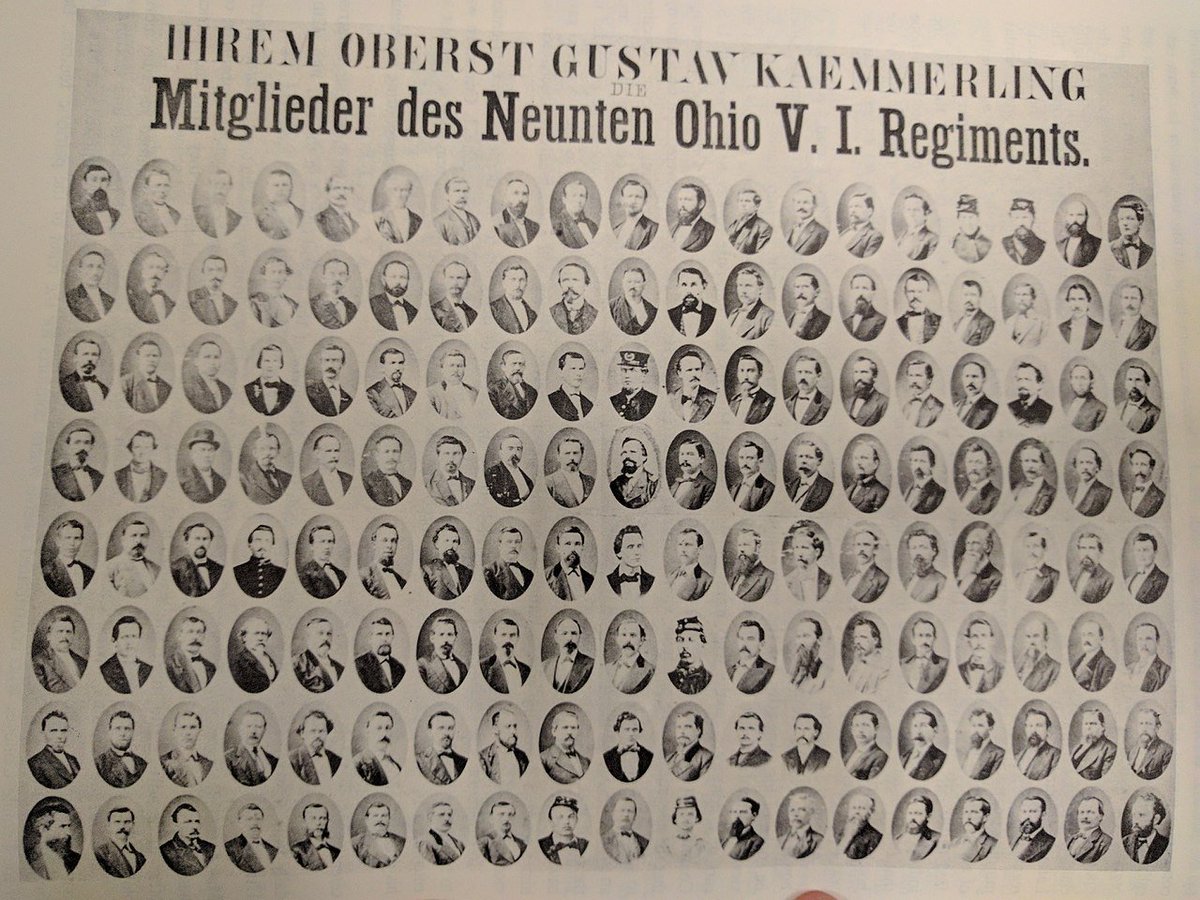The word communism was first noted decades before Marx adopted it.
And like every other well-known formally educated white male revolutionary writer, there was a sea of people with more opsec concerns and less privilege doing the lionshare of the work he cribbed from him
And like every other well-known formally educated white male revolutionary writer, there was a sea of people with more opsec concerns and less privilege doing the lionshare of the work he cribbed from him
A lot of the beliefs associated with communism had been first written centuries earlier, but the actual word was derived from a French term, which has originated to describe people who were essentially "left of Robespierre."
By the time the term made the jump into English and German lexicons, its base ideological description had already been refined and associated with a demand to return to communal ownership of communal resources. We haven& #39;t even gotten to Karl Marx yet.
(In a lot of ways, communism was originally about rectifying the mistakes of Robespierre and adjusting the ideological basis to produce a more equitable society than what the Jacobins had to offer)
It would be in 1842 that Karl Marx would first start seriously engaging with socialist and communist ideologies. He is 24 and his academic career is seemingly DOA because of his associations with rabble-rousing Hegelians.
Marx moves to Brussels in 1845. That will be important.
We can& #39;t say for sure when he became involved but we know that from 1847 to 1852, Karl Marx was vaguely associated with "secret society" called the Communist League, an international proletarian organization partially responsible for the uprisings throughout Europe in 1848.
It& #39;s in February, 1848 that Marx publishes the Communist Manifesto, his contribution to accelerate the European revolutions. A certain version of history would have you believe this singular publication is responsible for the 1848-9.
The actual timelines in play make it a little clearer that the revolutions of 1848-9 were a consequence of the same discussions which informed the Communist Manifesto, not exactly a result of its publication.
It& #39;s extremely likely that Karl Marx and Friedrich Engels wrote the Communist Manifesto, with the help of at least one other person (probably more) as an accelerant to fuel existing discontent, to codify and lay out existing ideas.
But, the Revolutions don& #39;t go well. As the fighting affects 50 countries, and the communists involved were kind of keeping their opsec tight, it& #39;s impossible to know how many self-identified communists die.
They don& #39;t lose everything. The state powers concede to certain demands to prevent secondary and tertiary uprisings. The notion of freedom of the press is made into law in multiple countries as a result of the workers rebellions.
We can& #39;t call them communist uprisings, as, while communists were involved, the sheer scale of the unrest and fighting in Europe in 1848 would be more aptly described as workers rebellions. Semi-secret partisan ideologues can& #39;t make those numbers on their own.
We can& #39;t know how many communists there were who died but we can know about some of the ones who lived.
During the blowback from state institutions, Marx is exiled and moves to Britain where he became a regular contributor to the New York Daily Tribune from 1852 to 1862.
During the blowback from state institutions, Marx is exiled and moves to Britain where he became a regular contributor to the New York Daily Tribune from 1852 to 1862.
Like, thousands of other exiles from the German revolutionary circles, moved to America. I couldn& #39;t hope to find them all or discern their ideological basis buut, there& #39;s some who should be mentioned.
Mathilde Franziska Anneke, a known "friend of Karl Marx", was exiled from Germany in 1848, moved to Milwaukee in & #39;52, she started an early feminist journal that employed women and endured significant harassment from men in her field for it. She was a vocal opponent of slavery.
August Willich, was court-martial in Prussia attempting to resign in protest, renounced his lands and titles in 1847 before his exile.
He became known as one of the "Ohio Hegelians."
He was a dedicated abolitionist who fought in 9th Ohio volunteer infantry.
He became known as one of the "Ohio Hegelians."
He was a dedicated abolitionist who fought in 9th Ohio volunteer infantry.
Speaking of the 9th Ohio Infantry Regiment, it was made up almost entirely of German migrants, a significant but difficult to measure percentage of which were associated with the communist movements in Europe prior to emigrating.
Now, you might be noticing all these white Germans. Germany is the one I know well because they tend to be valorized as early abolitionists in the U.S.. Over 50 countries had uprising in Europe.
The people who history forgets, who get buried in the machinations of operational secrecy, historical revisionism are always people of color and women. Black German communists weren& #39;t exiled. They were killed or imprisoned.
One of the lies western-society loves to embed in history is the erasure of marginalized identities, the very identities for whom the promise of "the emancipation of all mankind," the oath of the Communist League, might most appeal.
this thread is full of typos and kind of wandered a little in the middle. i hate that but it could be worse.
anyway, here& #39;s a periodic call for assistance
there& #39;s supplies i& #39;m running low on
 https://abs.twimg.com/emoji/v2/... draggable="false" alt="▶" title="Nach rechts zeigendes Dreieck" aria-label="Emoji: Nach rechts zeigendes Dreieck"> https://paypal.me/redconversation ">https://paypal.me/redconver...
https://abs.twimg.com/emoji/v2/... draggable="false" alt="▶" title="Nach rechts zeigendes Dreieck" aria-label="Emoji: Nach rechts zeigendes Dreieck"> https://paypal.me/redconversation ">https://paypal.me/redconver...
 https://abs.twimg.com/emoji/v2/... draggable="false" alt="▶" title="Nach rechts zeigendes Dreieck" aria-label="Emoji: Nach rechts zeigendes Dreieck"> https://cash.me/$redconversation
https://abs.twimg.com/emoji/v2/... draggable="false" alt="▶" title="Nach rechts zeigendes Dreieck" aria-label="Emoji: Nach rechts zeigendes Dreieck"> https://cash.me/$redconversation
https://cash.me/$redconve... class="Emoji" style="height:16px;" src=" https://abs.twimg.com/emoji/v2/... draggable="false" alt="▶" title="Nach rechts zeigendes Dreieck" aria-label="Emoji: Nach rechts zeigendes Dreieck"> https://ko-fi.com/redconversation ">https://ko-fi.com/redconver...
anyway, here& #39;s a periodic call for assistance
there& #39;s supplies i& #39;m running low on

 Read on Twitter
Read on Twitter




